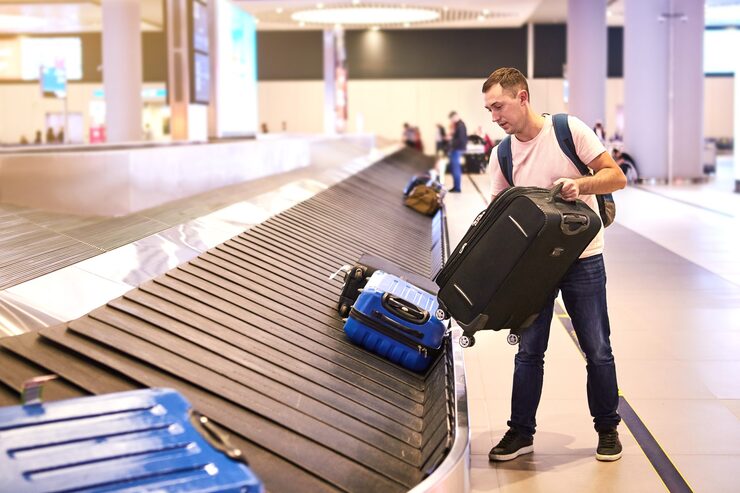Why Don’t Airlines Charge Passengers by Weight?

At first glance, it may seem logical for airlines to charge passengers based on total weight—just like they do with baggage. After all, planes burn fuel to carry weight through the air, so shouldn’t a heavier load, whether it’s a person or a suitcase, cost more? While this idea has sparked curiosity and debate, the reality is far more complex, both technically and ethically.
Why Airlines Charge for Overweight Baggage but Not People

The main reason airlines charge for overweight baggage is not fuel—it’s logistics. According to baggage handling agreements, workers aren’t required to lift bags heavier than 50 pounds. Anything heavier must be handled by two staff members, increasing labor costs. So when you pay extra for a 51-pound suitcase, you’re covering the added ground handling expense—not fuel consumption.
People, however, carry themselves to their seats. No extra labor is involved, regardless of their size. Additionally, passenger weight—unlike luggage—is not something the airline handles manually during the boarding process.
Weight vs. Seat: The True Cost to Airlines

While fuel costs are certainly affected by total weight, the difference made by variations in individual passenger weight is relatively minor on large jets. On short domestic flights, the difference between a 100-pound person and a 300-pound person may be negligible in terms of fuel usage—perhaps just a few dollars.
Airlines operate on the basis that each seat is a unit of space to be sold, regardless of who occupies it. The most limited resource on a plane is not weight capacity, but seating space. A person occupying a seat, whether heavy or light, consumes that same resource.
However, on smaller aircraft or long international flights, total weight becomes more critical. In fact, some airlines in the Pacific Islands have implemented pay-per-weight systems due to the smaller planes and more sensitive weight requirements. In such cases, every pound counts—not just for fuel, but for weight distribution and safety.
Could a Fairer System Be Developed?

Some people argue that a combined weight model—passenger plus baggage—might be more equitable. For example, a ticket could include up to 300 pounds total, and anything beyond that would be charged extra. In theory, this could balance costs better, especially in situations where a lightweight passenger with an overweight bag ends up paying more than a much heavier person with a small bag.
Others suggest matching seat sizes to body sizes: passengers who need more space would pay more and receive larger, more comfortable seats. This could help avoid the awkwardness of cramming large passengers into tight rows or crowding smaller passengers. Yet implementing such a system presents huge logistical challenges. Pre-arranging seating by size and weight could be a nightmare for airlines and families traveling together. It may even require redesigning cabins to include adjustable seats or family seating pods.
Social Sensitivity and Legal Concerns

Even if weight-based pricing made technical sense, the social implications are fraught. Charging by weight would likely cause public backlash and raise legal questions about discrimination. Critics ask: Would average-weight men pay more than average-weight women? Would children pay a fraction of an adult fare?
Many people view such practices as insensitive or even dehumanizing. Being weighed publicly at the airport could feel invasive or humiliating. Airlines worry about damaging customer relationships and brand image by appearing to penalize people for body size—something many individuals already struggle with.
Is It Really Worth It?

In economic terms, the impact of individual body weight on airline costs is generally small—estimated by some experts to be around 5% of total fuel costs. That’s not insignificant, but not enough to justify a radical overhaul of pricing models, especially given the backlash it would provoke.
Instead, airlines focus on charging for items that directly affect operational costs and logistics—like luggage. It’s easier, less controversial, and within established industry norms.

























